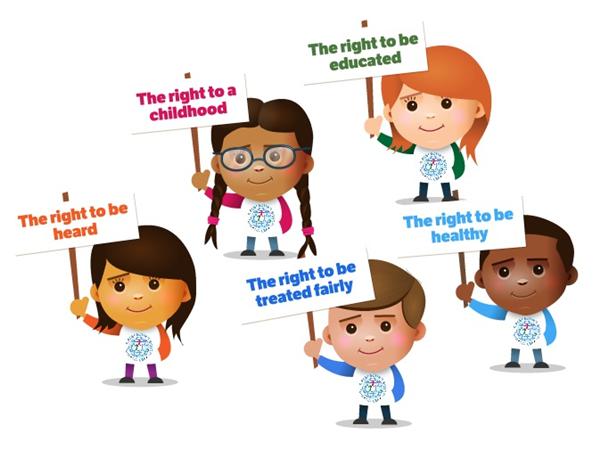Understanding the Importance of Listening to Children
Children are often the most vulnerable members of society, and their voices are crucial in shaping policies that affect them. Listening to children helps to create a safe environment where their needs and opinions are valued. The ability to consider children’s perspectives can lead to more effective and relatable measures in protecting them from violence.
The 10 Commitments Explained
The 10 commitments to end violence against children are a framework that highlights essential actions for governments and organizations. Each commitment serves as a guideline to ensure that children’s rights are upheld and prioritized in all aspects of society. These commitments aim to drive collective action towards a future free from violence for all children.
Commitment 1: Empowering Children
This commitment emphasizes the importance of empowering children to speak up about their experiences and needs. By providing a platform for children’s voices, we can better understand the realities they face and address the issues at hand. Empowerment fosters resilience and confidence among children, enabling them to advocate for their own rights.
Commitment 2: Ensuring Safe Spaces
Creating safe spaces is vital for children to express themselves without fear of violence or repression. Such environments must be free from physical harm, psychological abuse, and neglect. Safe spaces encourage children to share their stories and contribute to discussions about violence prevention strategies.
Commitment 3: Promoting Inclusivity
An inclusive approach recognizes the diverse backgrounds and experiences of children. It is essential to include children from all walks of life, ensuring that marginalized groups are represented and heard. Inclusivity enriches dialogue and leads to more comprehensive solutions to end violence.
Commitment 4: Training and Educating Adults
Training and education for adults are critical components in safeguarding children. Adults must be equipped with the knowledge and skills to recognize, prevent, and respond to violence against children. This commitment underscores the responsibility of adults to protect and nurture young individuals.
Commitment 5: Creating Child-Friendly Policies
Child-friendly policies must prioritize the needs and perspectives of children in all decision-making processes. By involving children in the development of these policies, we can ensure that they are relevant, effective, and impactful. Policymakers are encouraged to consult children as experts in their own lives.
Commitment 6: Supporting Community Initiatives
Community initiatives play a vital role in fostering environments where children can thrive. Local organizations often have unique insights into the challenges children face and can implement tailored solutions. Supporting these initiatives can amplify their impact and reach within the community.
Commitment 7: Ensuring Access to Justice
Access to justice is crucial for children who have experienced violence. It is imperative that legal systems are child-friendly and sensitive to the needs of young victims. Children should be able to seek help and protection without barriers that may discourage them from coming forward.
Commitment 8: Engaging Youth in Leadership
Engaging youth in leadership roles empowers them to advocate for change. When young people take part in decision-making, they help shape the discussions that affect their lives. Their involvement is essential in creating sustainable reforms in policies aimed at preventing violence.
Commitment 9: Global Collaboration
Collaboration among global stakeholders is vital to address the widespread issue of violence against children. Sharing knowledge, resources, and best practices can enhance existing efforts and create more robust responses. By working together, we can amplify our impact on ending violence across borders.
Commitment 10: Monitoring and Accountability
Monitoring progress and holding all actors accountable are essential to ensuring that commitments are met. Regular assessments can help identify gaps in implementation and provide opportunities for improvement. Accountability mechanisms foster trust and encourage continued progress towards eliminating violence against children.
Conclusion
Listening to children is not just an act of empathy; it is a necessity for creating effective interventions against violence. By adhering to the 10 commitments, we take significant steps towards ensuring a safer world for every child. For more detailed information on these commitments, please visit the following link: Listening to Children – The 10 Commitments on Ending Violence Against Children.

